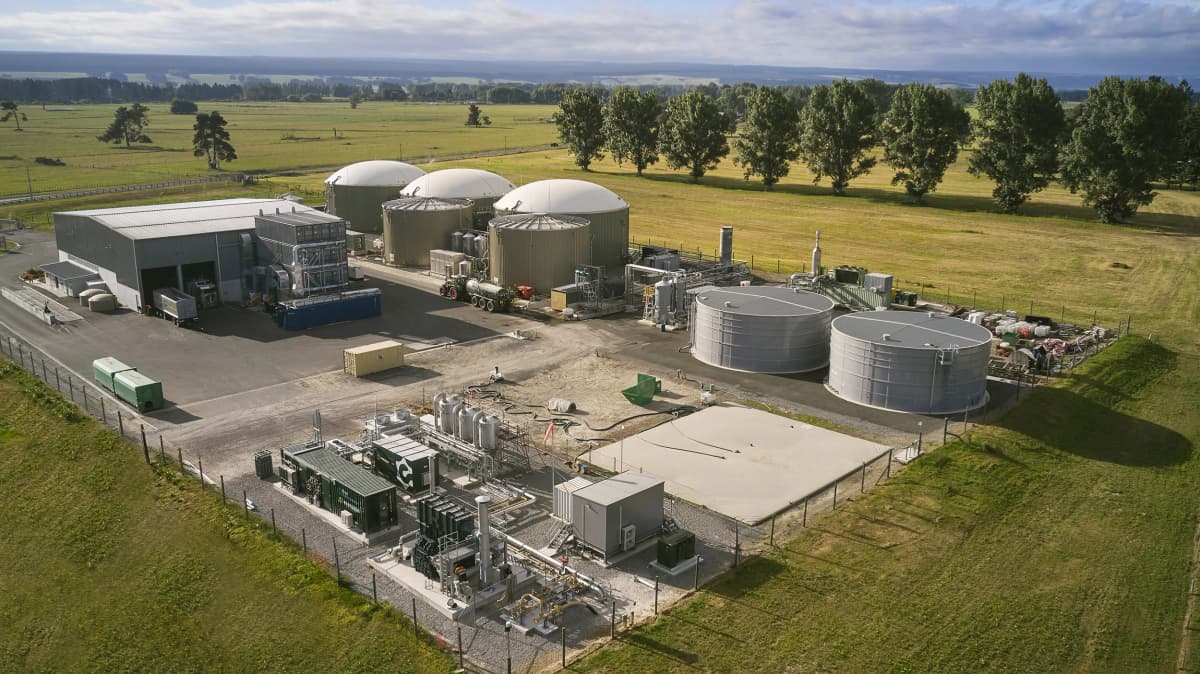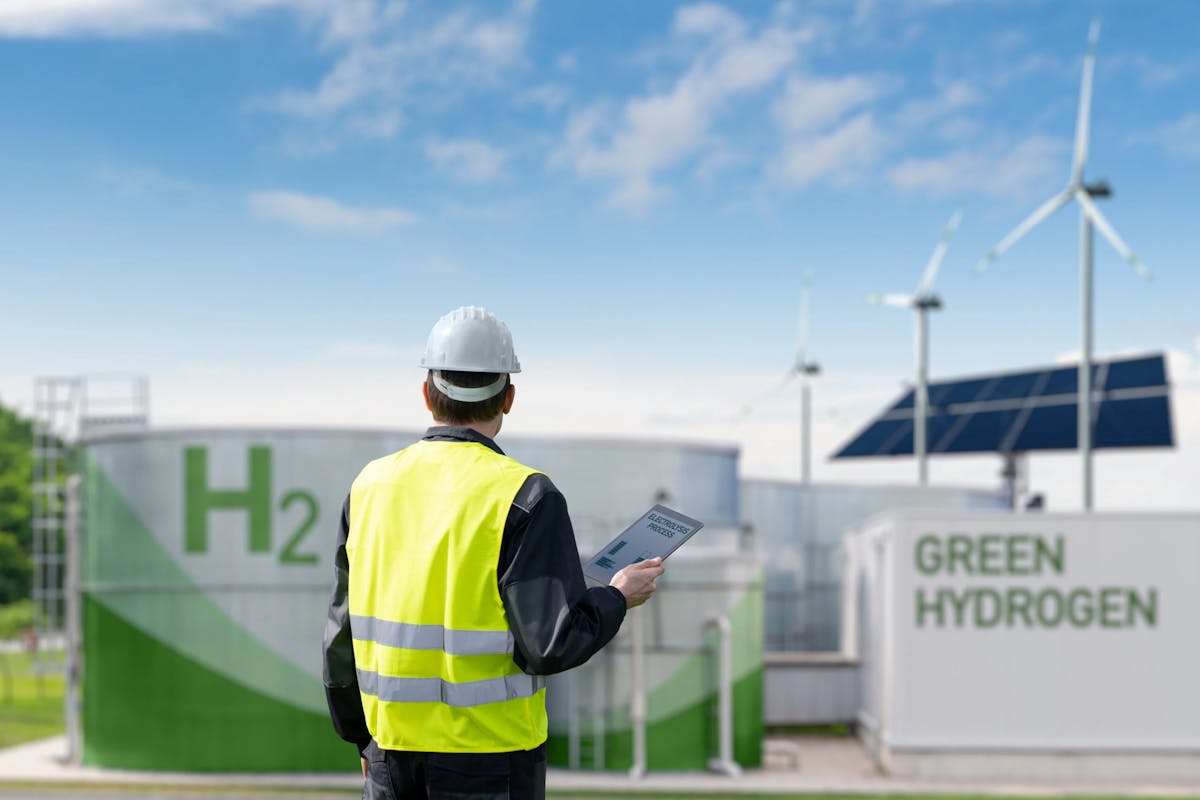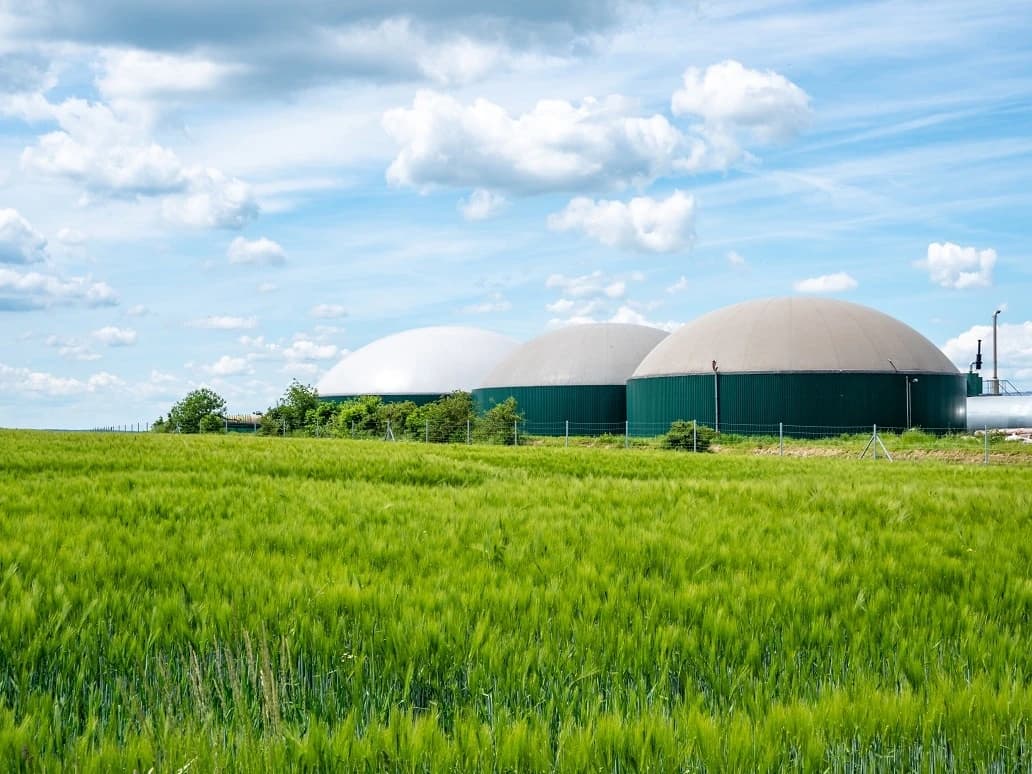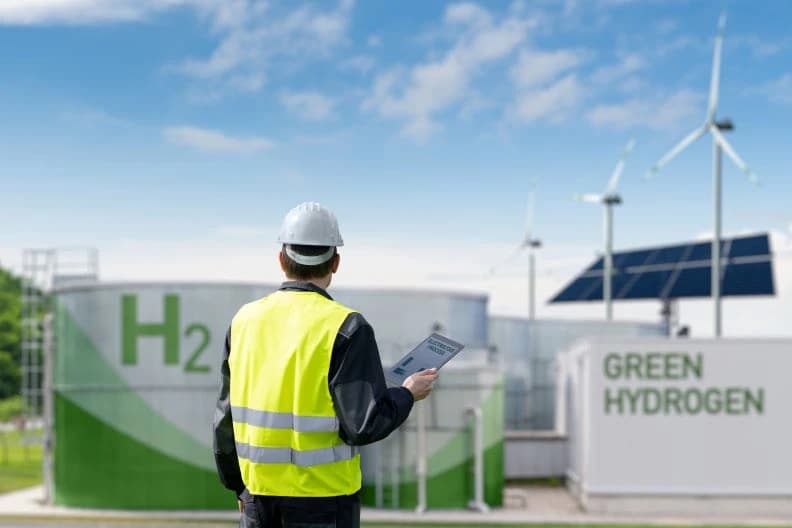Thanks to extensive research and close monitoring of international efforts, we’re planning our route towards distributing cleaner, more energy efficient renewable gas including green hydrogen, biogas and bioLPG.


Sourced: Clarus
At Clarus, we want New Zealanders to continue enjoying the benefits of gas while keeping New Zealand clean and green.
Renewable Energy Explained
Renewable Energy Explained
When we talk about renewable gas and our renewable gas projects, here are some common terms we use, and what they mean. Watch our video to learn what key renewable gas terms mean and how they relate to our renewable gas projects.

Sourced: iStock
Renewable Gas
Renewable gas is widely used to describe gases that do not produce additional GHG emissions when combusted. There are two primary forms of renewable gas: Renewable hydrogen or green hydrogen and Biomethane. Generally, renewable gases (or some form of blended renewable gases) can be relatively easily stored in large volumes within existing gas networks.
Hydrogen
Hydrogen (H2) is the most abundant element in the universe. When used, hydrogen does not release any carbon or other greenhouse gas emissions.
Hydrogen gas can be used as a substitute for natural gas in various industrial uses, including for heating, power production and as feedstock.
Renewable hydrogen or green hydrogen is produced by using renewable electricity to separate hydrogen from water. Learn more about green hydrogen here.

Sourced: iStock
Biomethane
We define biomethane consistently with GasNZ*, being methane produced from renewable sources like digested organic waste and gasified biomass. It has the same chemical make up as natural gas. It is a less emissions intensive form of methane - produced by further processing or “scrubbing” of biogas. In New Zealand, biomethane is biogas that has been upgraded to meet the pipeline gas specification (NZS5442 in New Zealand).
Biogas
A renewable energy source containing a mixture of gases, primarily methane, carbon dioxide and hydrogen sulphide. It can be produced from raw materials such as manure, municipal waste, plant material, sewage, green waste, wastewater, and food waste.
*GasNZ provides a single and consistent voice for all gas fuels. GasNZ members have interests in natural gas, LPG, biogas and hydrogen gas, and represents all parts of the gas chain.
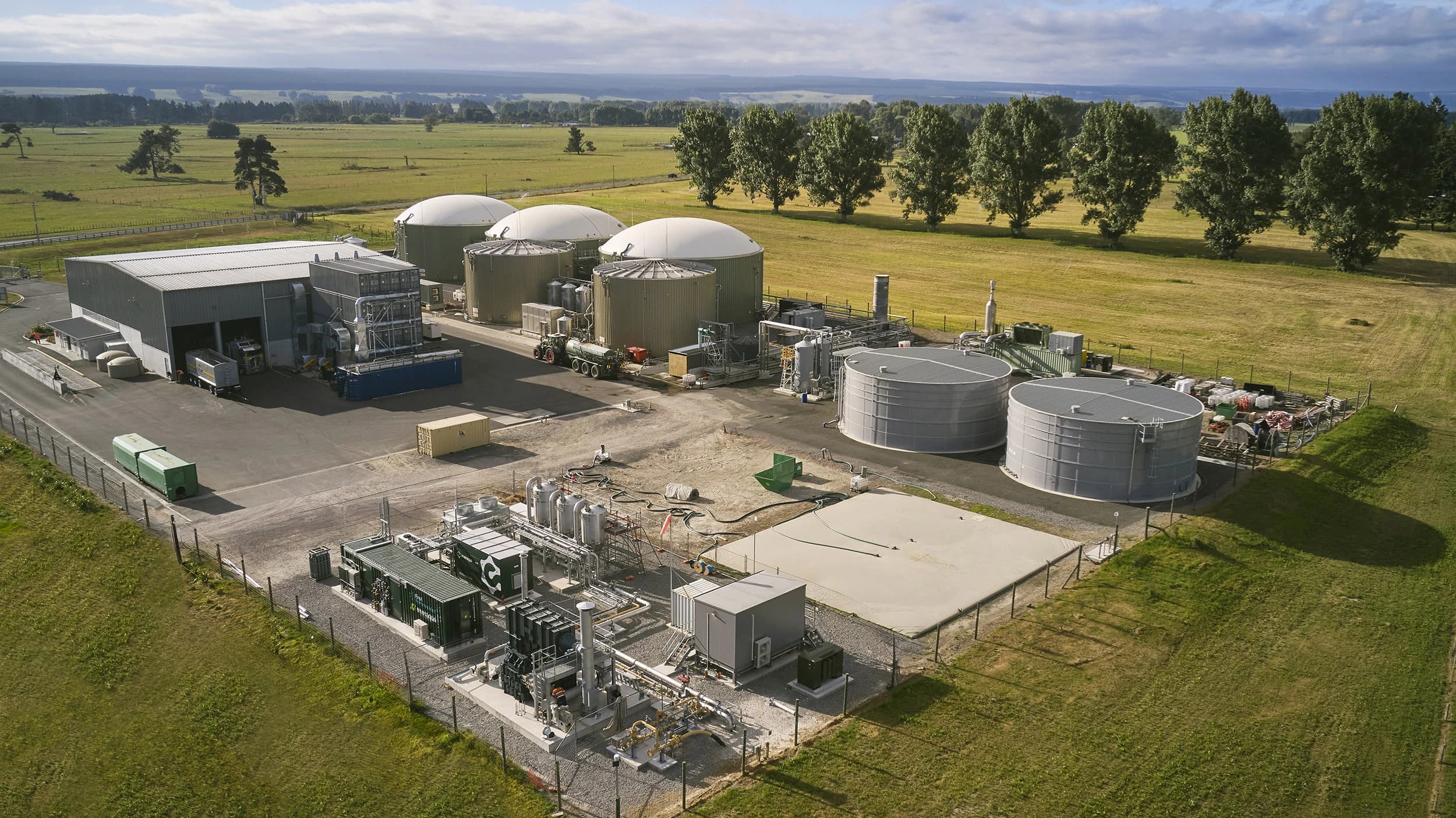
Ecogas Reporoa Organics Processing Facility
How Clarus is using biogas
First Renewables, a Clarus company, in partnership with Ecogas’ Reporoa Organics Processing Facility, is leading the way in turning food waste into biomethane, a form of renewable gas. Together, we’re converting biogas, produced through the breakdown of food waste, into biomethane, a clean, renewable gas that’s chemically identical to natural gas.
This biomethane is being blended into a Firstgas pipeline in Reporoa, making it available to thousands of homes. Initial production estimates suggest this single facility could supply enough renewable gas to power up to 7,200 homes annually*.
Food waste is a major contributor to global greenhouse gas emissions. When we discard food improperly, we don’t just waste resources, we accelerate climate change, contaminate water, erode soil, and threaten biodiversity.
Through anaerobic digestion, a natural process where micro-organisms break down organic material, we unlock the potential of food scraps. This process produces biogas, which can be used to generate energy, produce clean bio-fertiliser, and capture valuable BioCO₂, and digestate, a nutrient-rich byproduct that can improve soil health.
This project is more than just renewable energy, it’s a step toward a circular economy, where waste becomes a resource and sustainability powers progress. By rethinking how we handle food waste, we’re helping build a cleaner, more resilient energy future for New Zealand.
Food scraps become incredibly valuable when transformed into biogas
Food scraps become incredibly valuable when transformed into biogas
Working towards net zero carbon emissions by 2050
Working towards net zero carbon emissions by 2050
Ecogas’ Organics Processing Facility in Reporoa has partnered with First Renewables, part of Clarus, on New Zealand’s first large-scale biogas project that turns biogas made from food scrap waste into biomethane, a valuable source of renewable gas. Action that helps move New Zealand towards its target of net zero carbon emissions by 2050.
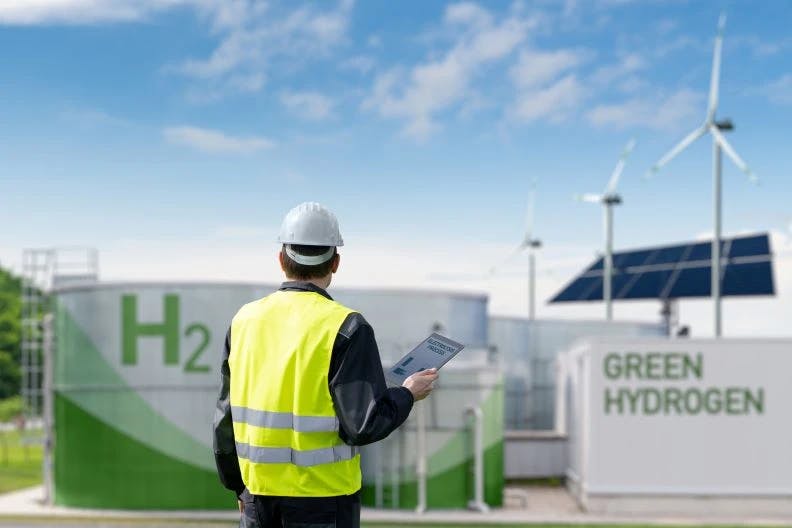
Sourced: iStock
We’re planning NZ’s first Hydrogen blend pilot
Hydrogen is a cleaner alternative to natural gas. It can be produced by electrolysis, which is the process of using electricity to split water into hydrogen and oxygen. If the electricity is generated using renewable resources, like wind and solar, then the process creates no new carbon emissions, and the hydrogen produced is “green” hydrogen.
Clarus is working on a project to blend a small amount of hydrogen with natural gas in our Firstgas pipeline network. While this is already happening in Australia and Europe, it would be a first for New Zealand and we hope to commence our Hydrogen Blend Pilot in the coming months.

Sourced: iStock
The future of Renewable Liquid Gas (rLG)
Renewable Liquid Gas (rLG) is chemically identical to conventional Liquified Petroleum Gas (LPG), but with a lower carbon footprint.
Currently LPG, is used in thousands of homes and businesses across New Zealand and particularly in the South Island. Many homes use 45kg LPG bottles for heating, cooling and hot water – providing instant heat all year round- as well as 9kg bottles to fuel the barbie.
New Zealand uses around 190,000 tonnes* of LPG annually. While LPG is only meeting a tiny fraction of our total energy requirements and emits much less carbon dioxide than other fossil fuels, it still contributes to our national greenhouse gas emissions. By switching to rLG in the future, we can reduce our emissions which helps New Zealand transition to a renewable future.
The development of rLG is an exciting area for research and development, and one that Clarus continues to support. As a member of GasNZ, Clarus is supporting studies into rLG across the industry.
*Source: gasnz.org.nz/what-we-do




